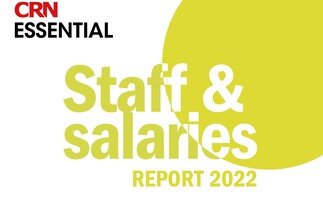
Sarah Long
Chief people officer, Computacenter
What's the most pressing issue preventing progress with diversity today that no one's talking about?
One of the biggest barrier to progress is simply that people aren't talking because they're worried about saying the wrong thing; language is important and the words we use can be significant. With the constantly evolving language in diversity and inclusion (D&I) many people are so concerned about getting it wrong and causing offence that they don't say anything at all. Talking and asking questions is how we learn; however, unfortunately sometimes our intent and the impact of our words don't always align, but we need to find a way to have more constructive conversations so we can continue to learn and develop and become confident in how we speak. To combat this in our business we run regular ‘speak freely' events, where our people can come together and speak openly to ask those challenging questions in a safe environment where the key objective is to learn and break down barriers.
What do you believe are the most effective policies and initiatives that companies can implement to promote diversity in their workforce?
Standalone D&I policies and initiatives are not enough to get us where we need to be. The key priority should be embedding D&I into existing policies and initiatives while supporting them with focused activities that align to the business authentically in a way to which people can relate. In the long term, I hope we won't need these standalone initiatives because diversity will be embedded. However, the reality is that right now these targeted activities help us to speed up progress. The most effective initiatives are those that are created with the people who these initiatives are intended to support, ensuring the actions are sustainable. For example, if we want to improve our ethnic diversity at a senior leader level, we can't invest all our time and energy into just that level; we need to create a sustainable talent pipeline starting with school outreach activities right through to development of senior leaders.
How much progress do you believe the industry has made in diversity since you started working in IT?
A huge amount! The industry has come a very long way since I first joined it. There's clear recognition of the value D&I brings to a business and companies are taking significant steps to drive progress. D&I is not just seen as a HR issue, but as a business issue and business leaders are stepping up to drive this change. The value of D&I is seen not just by us, but by our customers as well who know how important it is that we reflect them to truly understand their needs. We all still have a long way to go to get where we want to be, but we've seen progress has accelerated rapidly (particularly over the last decade) and I don't see it slowing down.
What should senior management teams be doing more of to help create a more inclusive industry for everyone?
One of the key things senior managers can do is to be role models. When people see senior leaders talking about inclusion or sharing their own backgrounds and different experiences, it opens the door for others to do the same. The more we can embed inclusion and the value of diversity into our day-to-day conversations, the quicker it becomes common place and we'll see the results.
How did you first get into the IT industry?
My first job was for a Hi-Fi manufacturer and IT distributor. I worked initially as an executive assistant and learned quickly about what we sold, our partner network and customers. After a year I moved to a UK startup arm of a US server manufacturer, where I moved into sales and that was it from there, a full-on IT career!
What have been some of your experiences (both good and bad) with how the IT industry has historically approached diversity?
The IT industry has always been male dominated. It's less so now, but men still form the majority of the workforce in leadership, technical and sales roles in most IT businesses. The male dominance wasn't an issue at ‘good employers' who saw you as an individual and progress was made based on your merit, not your age, gender or ethnicity. As a young, female salesperson in IT during the 1990s, it was often hard to be taken seriously by some individuals in organisations (resellers and customers) who tended to look to the older white man in the room for authority (even when I was the manager!). Great experiences were usually centred around people that advocated for me as a ‘minority' including managers and my own team members who corrected poor behaviours and backed me up… and I have lots of examples of that!
Who have been your biggest role models in your professional life?
I draw inspiration and learning from many people I meet and work with, I have been incredibly lucky to work with some great leaders, who have taught me myriad skills, to look at opportunities and issues through a different lens and to push me forward when I have been unsure of myself. I listen and learn from people in the teams I have led, where their insights and perspective have helped me be a better manager, I have also seen people ‘in action' and observed negative reactions and thought about how those people have made me feel and resolved never to do that. So I draw on all experiences. The person I have learned the most from about leadership is our CEO, Mike Norris. His ability to drive a culture of belonging, focused around our purpose of delivering customer service excellence, through committed and engaged people to achieve business results is inspirational.
Do you believe Covid has hampered or helped gender diversity efforts in the IT industry?
The pandemic created a significant demand on those who care for others; women normally take on the majority of childcare responsibilities and that of elder dependents. So in some industries and roles I think that women were significantly impacted. Conversely, the pandemic and shift to remote working created a form of ‘levelling' where everyone was online with access to the same communication routes and we saw some people flourish who were perhaps less confident in person but who found their voice through participation virtually. Another positive impact the pandemic has driven is a need for greater empathy in leaders and this trait is commonly found in females opening up opportunities for female managers and leaders to flourish in the new era where a more human and personal interaction is needed post-pandemic.













